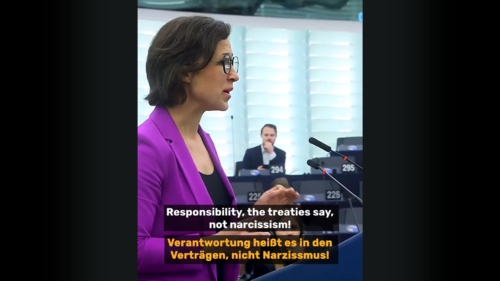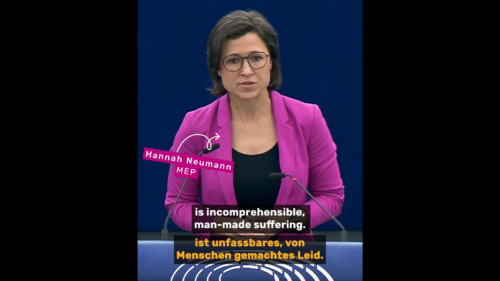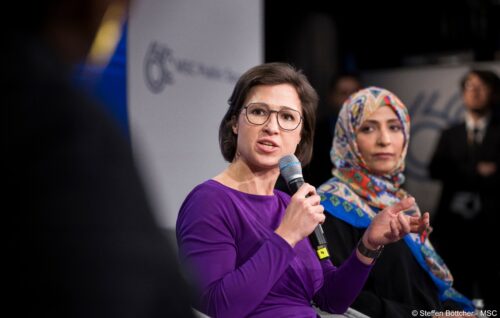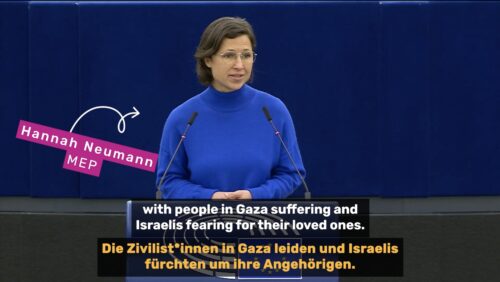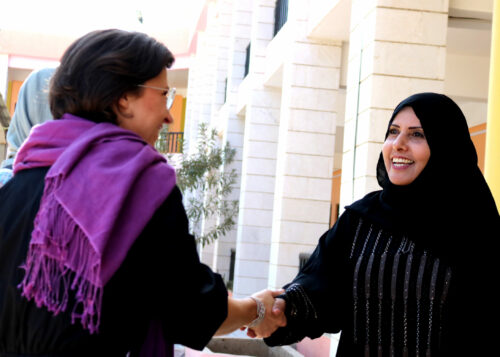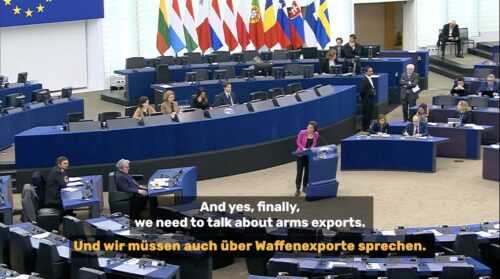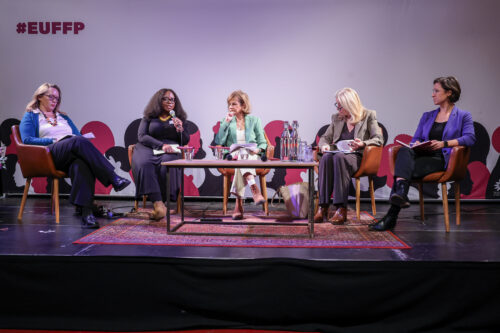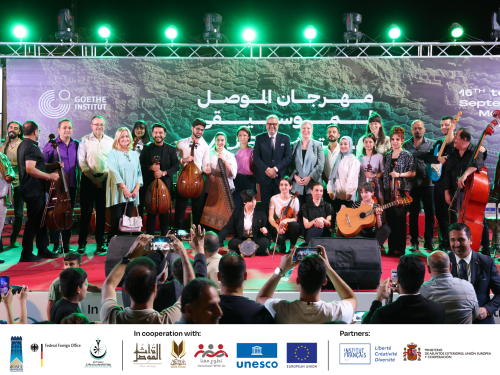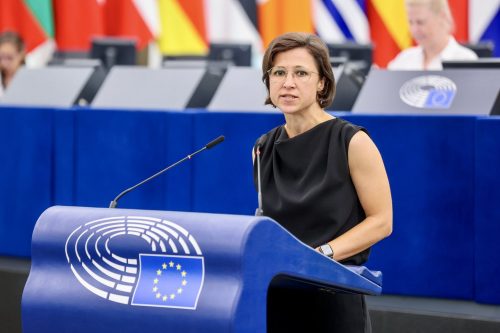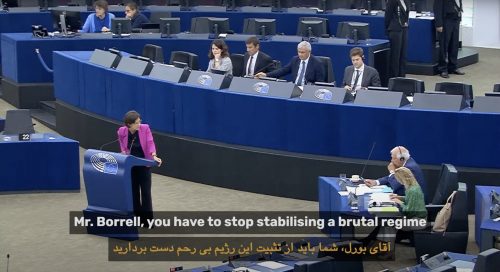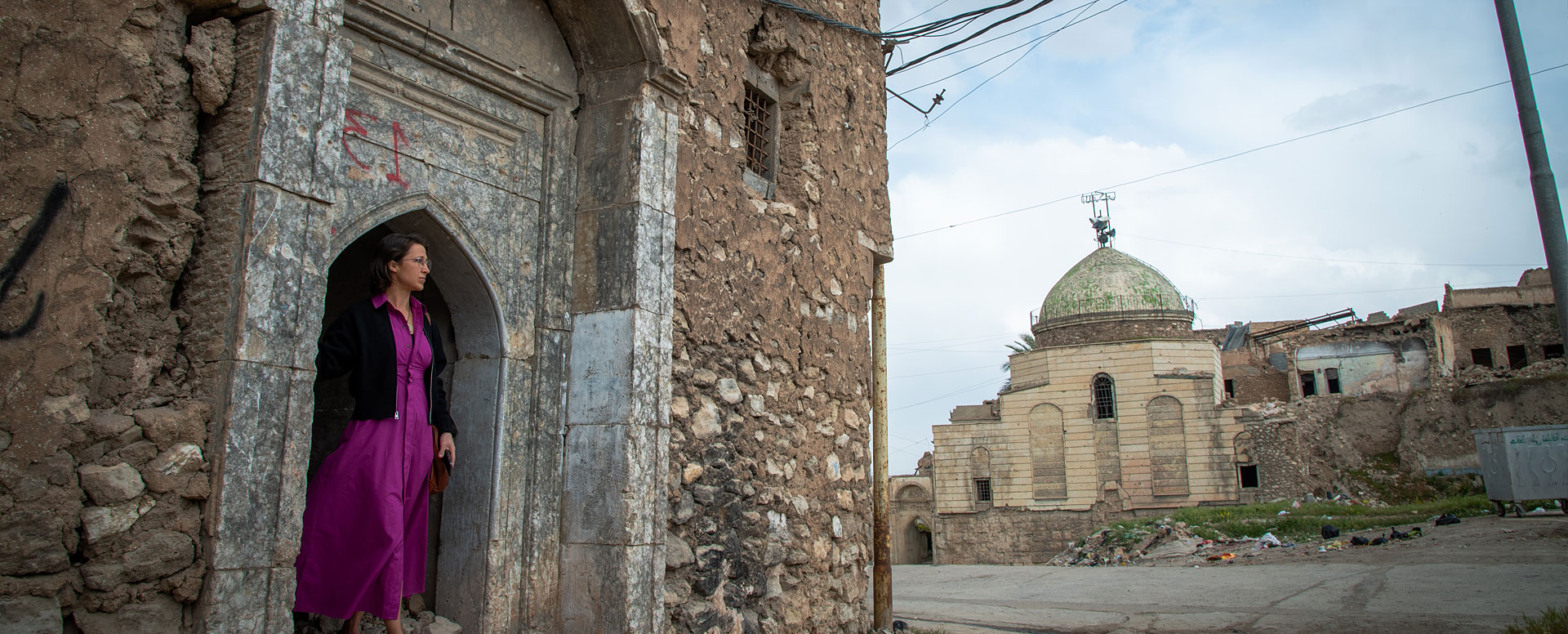
Peace and security
As a peace and conflict researcher, I have experienced first-hand how quickly hatred and spiteful agitation can turn into violence and destruction. And how difficult it is for people and societies to return to a good coexistence afterwards.
Europe is proof that it is possible nevertheless – and is thus seen as a positive example, a reason for hope by many. As a Union, we therefore have a special responsibility: not to contribute with our policies to turning conflicts into wars elsewhere. We must put forward the strength of the law as an alternative to the law of the jungle. That is why I am fighting for strict arms export controls at EU level, so that lethal weapons do not end up in the hands of dictators and warmongers. I call for sanctions against those who flout international law. And I advocate that we strengthen civil crisis prevention, mediation and humanitarian aid.
Russia’s attack on Ukraine has demonstrated that – despite all our efforts for peace – we must also defend ourselves militarily. That is why we must work more closely together when it comes to defending the security of the people in Europe. We finally need to leave behind nationalistic narrow-mindedness in defence policy. Only together do we have a chance of measuring up to the great challenges we are facing. That is why I advocate a genuine European defence policy – from the supply of critical raw materials to joint procurement and coherent export decisions, always in connection with transparent structures and parliamentary control.

